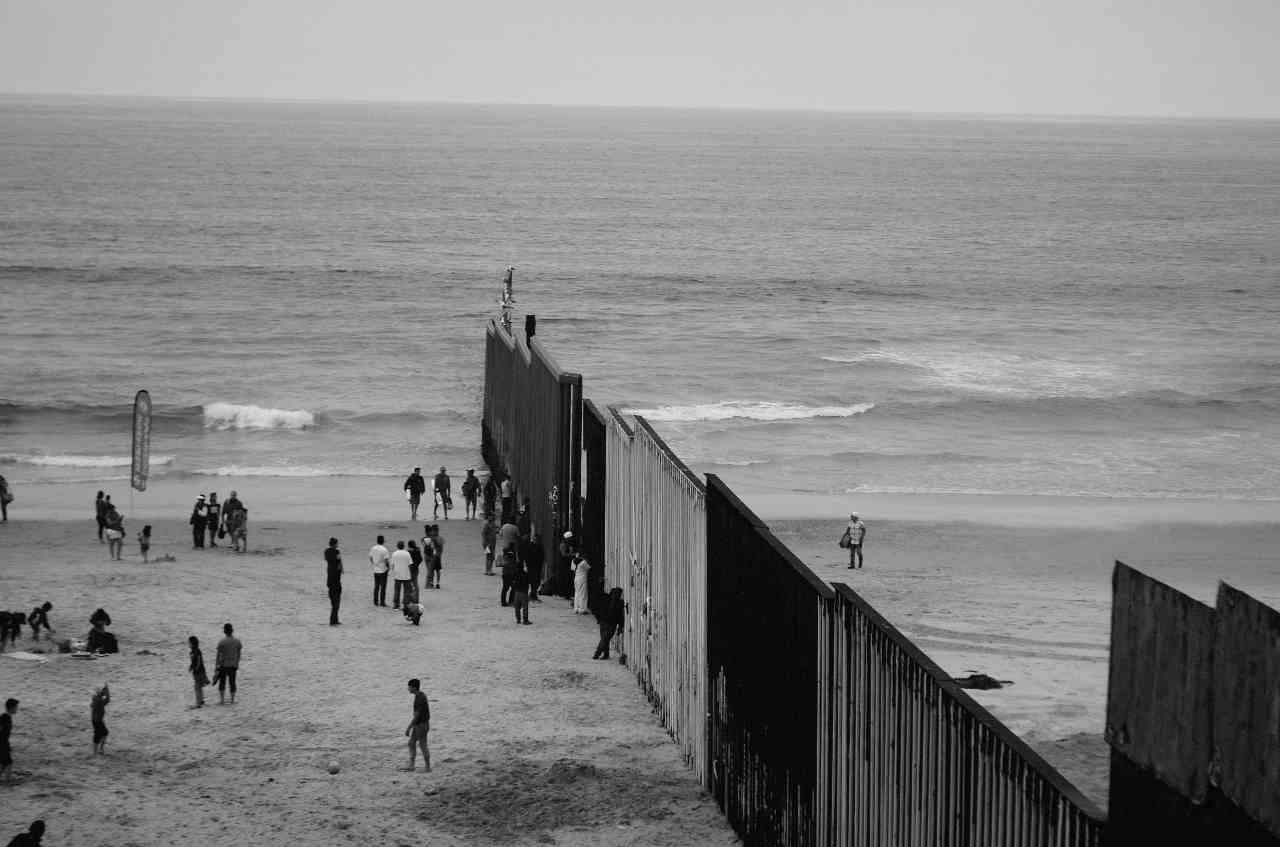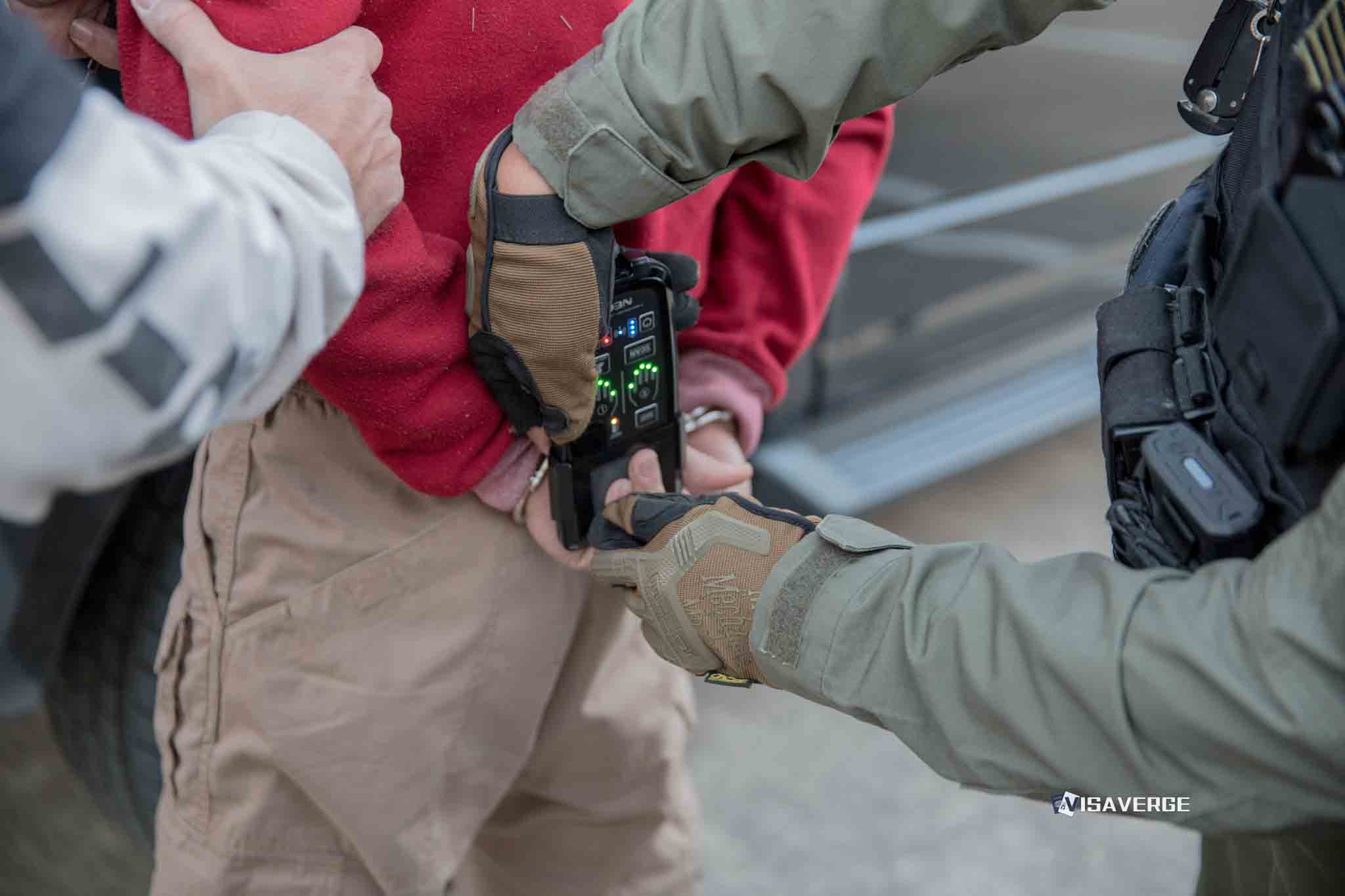(MEXICO) President Claudia Sheinbaum condemned recent U.S. immigration raids as “unjust” on September 9, 2025, and ordered Mexico’s consulates to intensify legal and humanitarian support for detained nationals. Her remarks followed a new surge in arrests and deportations under President Donald Trump’s policies, which have expanded enforcement, narrowed asylum access, and sent more military personnel to the border. The comments underscore rising tension between Mexico and the United States 🇺🇸 and renewed fears among mixed‑status families across key U.S. cities.
Mexican officials said at least 26 Mexican nationals were detained in the latest ICE operations in Georgia, with similar actions reported in Los Angeles and other cities. In L.A., a consular survey found over half of detained Mexicans had lived in the U.S. for more than a decade, and nearly a third had U.S.-born children. Mexico’s foreign ministry has directed consulates to verify detentions, provide lawyers, and notify families quickly. Sheinbaum has pressed Washington to pass broad immigration reforms that recognize migrants’ economic roles and reduce the need for large‑scale raids.

Enforcement escalation and policy shifts
Since January 2025, the Trump administration has issued executive orders that:
- Expanded ICE authorities, increasing workplace and street sweeps.
- Barred most asylum claims for people crossing outside official ports.
- Suspended the CBP One app, a key scheduling tool for asylum appointments.
- Deployed more than 7,500 troops to support enforcement.
A version of the “Remain in Mexico” program has been reinstated for some non‑Mexican asylum seekers, though the rollout has been inconsistent.
Key numbers and trends:
- Border Patrol reported 4,601 apprehensions between ports of entry in July 2025.
- After the CBP One shutdown in January, over 270,000 people were stranded in Mexico, many living in makeshift camps near crossing points.
- In Los Angeles, authorities detained 330 Mexican citizens between June 6 and July 7, 2025, most employed in car washes, construction, factories, and landscaping.
Consular responses and guidance:
- Mexican consulates have increased outreach to affected workers and urged people to carry identification, emergency phone numbers, and plans for child care should a parent be detained.
- The foreign ministry has ordered consulates to verify detentions, provide legal representation, and notify families promptly.
DHS has defended the raids as lawful and necessary for national security, saying due process is available in immigration courts. Civil rights groups dispute that claim, reporting rushed screenings, blocked access to lawyers, and family separations. Advocacy coalitions in Mexico report rising abuse and extortion targeting stranded migrants, warning that the CBP One suspension has deepened a humanitarian crisis along the border.
Human impact and community effects
For Mexican nationals in the United States, the practical risks have grown. Long‑time residents with deep ties—mortgages, businesses, U.S.‑citizen children—now face increased detention and removal, including during everyday activities like commuting to work or dropping kids at school.
Community-level consequences:
- Community groups and consulates report heightened fear and instability; some U.S. citizens of Latino descent allege mistaken stops or questioning.
- Analysis by VisaVerge.com indicates enforcement is reshaping daily life in immigrant neighborhoods, pushing people indoors and away from public services.
Family and child welfare:
- Parents detained during raids may be transferred far from home before relatives can arrange child care.
- Mixed‑status families report missed medical appointments and school days as parents avoid public places.
- Consulates are speeding verification calls and coordinating with local shelters and schools when children are left without caregivers.
Legal options and constraints:
- Lawyers note that some detainees may qualify to fight removal, but eligibility varies widely depending on past orders, criminal history, and family ties.
Employer and economic effects:
- Raids and deportations are straining employers who rely on experienced workers.
- Sectors affected include agriculture, construction, and hospitality, which report tighter labor supply and project delays.
- Federal prosecutions for “harboring” undocumented workers have risen, creating legal risks for employers who fail to follow verification rules.
- Business groups fear lasting shortages, while labor advocates warn sudden workforce cuts undermine safety and workload distribution.
Conditions at the border and humanitarian concerns
The pressure at the border shows no sign of easing. With asylum access heavily restricted, migrants stuck in Mexico face:
- Limited legal status
- Scarce jobs
- Unsafe living conditions
Shelters report overcrowding, aid groups describe rising mental health strain and increased exposure to violence. Humanitarian workers argue that restricting orderly channels has not stopped migration; it has rerouted people into riskier paths.
Mexico’s response has shifted from cautious cooperation to public pushback:
- Sheinbaum’s government has increased legal aid funding and expanded “know your rights” outreach.
- The foreign ministry is documenting alleged abuses for bilateral talks.
- Consulates continue to emphasize practical steps for nationals in the U.S.:
- Keep contact details for a trusted person.
- Store important documents safely.
- Ask for a lawyer before signing any papers.
Legal battles and political context
Lawsuits are challenging the new U.S. measures, including asylum restrictions and parts of the enforcement expansion. Civil society groups argue the rules violate domestic and international standards, while the government contends the measures are needed to restore order and deter unlawful crossings.
Historical context:
- During 2023–2024, President Biden maintained some legal pathways, including CBP One, while tightening other rules.
- In 2025, President Trump reversed course, suspending key access points and increasing enforcement tools.
- Mexican officials say these moves ignore migrants’ contributions and raise humanitarian costs on both sides of the border. They advocate for a bilateral approach that recognizes labor demand, protects families, and supports safe, legal options.
Practical guidance and resources
Practical steps for those affected:
- If you have pending immigration cases: keep all court dates, update addresses with authorities, and consult accredited counsel.
- If you do not have a pending case: prepare a safety plan, know your rights during encounters with officers, and avoid using false documents.
- Families should agree on emergency contacts and guardianship instructions.
- Workers should ask employers to follow lawful verification procedures and to share plans for potential audits.
Official and community resources:
- For eligibility questions, form instructions, and case updates, consult U.S. Citizenship and Immigration Services: https://www.uscis.gov/.
- Community groups and faith networks can provide referrals to low‑cost or pro bono legal help.
- Mexican nationals in the United States should contact their nearest consulate for protection services, legal referrals, and assistance notifying relatives in case of detention.
Important takeaway: Mexico faces growing demands on its consular system; immigrant neighborhoods in the United States face daily uncertainty; and border communities are coping with a prolonged humanitarian emergency. The coming months—through court rulings or congressional action—will determine whether enforcement remains dominant or whether broader legal pathways return to ease strain on families, workplaces, and local services.
This Article in a Nutshell
President Claudia Sheinbaum denounced U.S. immigration raids on September 9, 2025, directing Mexican consulates to intensify legal and humanitarian support for detained nationals. The remarks respond to expanded enforcement under the Trump administration—since January 2025—when executive orders broadened ICE authority, barred most asylum claims for crossings outside ports, suspended the CBP One app, and deployed over 7,500 troops. At least 26 Mexican nationals were detained in Georgia operations; Los Angeles reported 330 detentions in June–July 2025, many long‑term residents with U.S.-born children. Mexico’s foreign ministry ordered consulates to verify detentions, provide lawyers, and alert families. Civil rights groups report blocked legal access and rushed screenings, while advocacy organizations warn of extortion and a growing humanitarian crisis among over 270,000 stranded migrants in Mexico. The situation strains employers, disrupts families, and has prompted lawsuits challenging U.S. restrictions. Mexico has increased consular outreach and legal aid while pressing for bilateral reforms to protect migrants and recognize their economic contributions.













